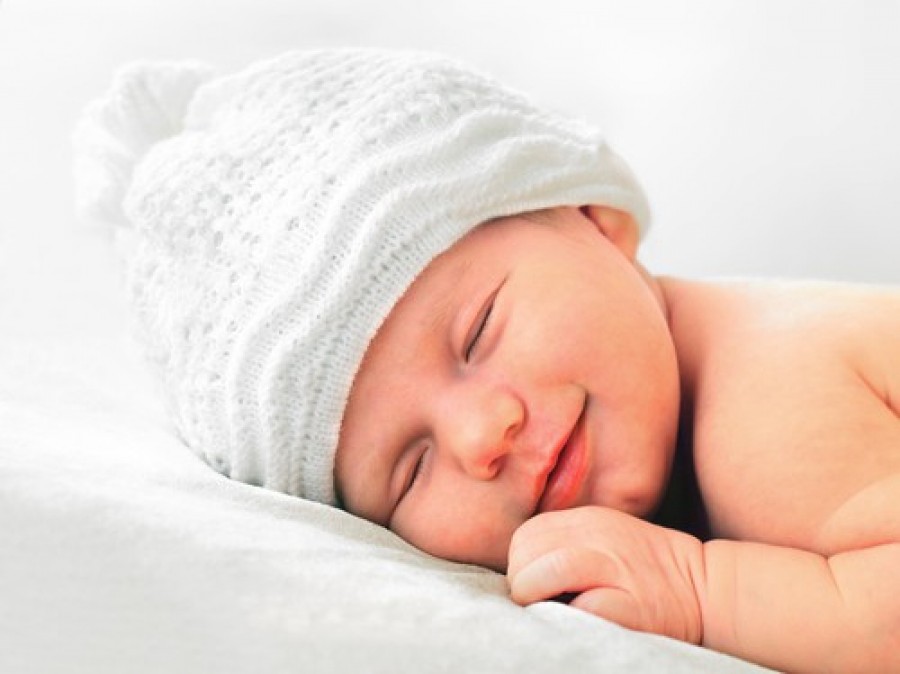Where should your newborn sleep?
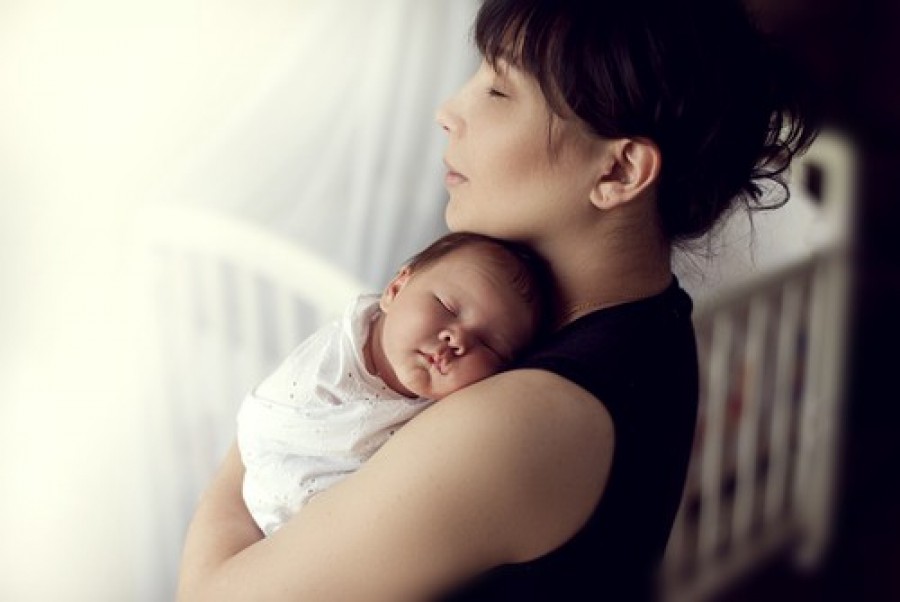
There are two factors that come into play when you are deciding where your newborn baby will sleep; what is medically recommended, and what you can cope with. These will not always be the same thing.
Smart mothers do their research and know all of the recommendations around SIDS and keeping your newborn as safe as possible. You can factor this information into your decision and do the best you can.
But you can also try to cut yourself some slack and make decisions about where your baby sleeps based on any combination of things:
What factors affect where your baby sleeps?
· How little sleep you’ve had
· Whether you’re breastfeeding or bottle feeding
· How well your baby feeds and digests
· How well your baby sleeps
· What your mother did
· What happened with your previous babies
· What happened with your friends’ babies
· What keeps you sane
· How many other kids or pets you have
· How big your house is
· And probably a few more factors that I haven’t thought of yet
In this article we will cover what is medically recommended, as well as what you may find the personal pros and cons to be.
The best advice will eventually be however just do the best you can for your baby, and don’t beat yourself up if you let anything slide a little for your own health and sanity.
Co-sleeping or bed-sharing with your baby on the same surface
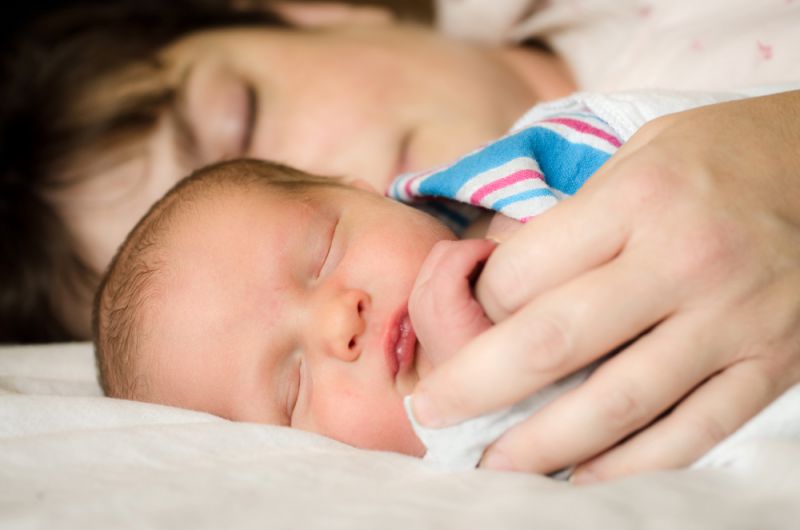
What experts recommend:
Generally, experts don’t recommend this, as it increases the risks of SIDS and other fatal sleeping accidents. This goes equally for co-sleeping, where your baby is always sleeping in your bed, or bed-sharing where sometimes you bring your baby into your bed for a nap or to breastfeed, because you might accidentally fall asleep.
Babies need to sleep flat on their backs and with their heads uncovered. When they are in bed with you both of these things are less likely to happen.
It also applies to napping with your baby on the couch, sofa or in the feeding chair. Whether you are holding your baby, or they are asleep on your chest (which they LOVE by the way), there is a chance if you fall asleep their airway could be obstructed, or you could drop them.
If parents are smokers, or affected by alcohol, drugs, medication, or severe lack of sleep, this increases the risk to their baby.
What you may find in reality:
The idea of never sleeping, napping or accidentally dozing off with your baby is virtually impossible.
You will already have enough things to worry about, such as why they aren’t feeding or sleeping, than to worry about the chances of you catching a little nap as well. You are almost guaranteed to fall asleep while holding or lying next to your baby at some stage in the early days.
You may also find that for cultural reasons, logistics or just practicality, you prefer to cosleep. You may also find that breastfeeding is easier when you are lying down together.
If you are going to do this, while also trying to minimise your chances of falling asleep, also keep your baby on her back, with her head overcovered, away from your blanket, pillow, head railings etc. just to be super safe.
Don’t be too scared about accidentally falling asleep with your baby or feel too guilty when it does. Do not take your baby into your bed or anyplace you are particularly comfortable if you have been drinking or may be impaired by medication or the fact that you haven’t slept in months. If there’s a chance you might nod off, set an alarm or get a reliable partner to check on you constantly.
Some good guidelines about cosleeping
Don’t cosleep if your baby was born preterm or is very small. During the first three months of their life be hypervigilant about keeping them safe in bed. Don’t cosleep on soft mattresses or waterbeds and keep your baby clear from the edge of the bed, the wall and your partner or any other children.
Many, many, many mothers have co-slept with their babies and had everything be ok. Usually the baby sleeps better, feeds better, and the mothers are more rested themselves. Your baby may be more relaxed and can grow up to be a better human being.
Your partner might not get a lot of sex however, so I’m not sure how you conceive the next one, but you’ll figure that out.
Sleeping with your baby in the same room

What experts recommend:
This is the recommended method for sleeping with your newborn, for at least the first six months and even up to twelve months. This has the lowest risks of SIDS and of other fatal sleep accidents attached to it.
Your baby should be on their own sleep surface, in the same room as you. They should be on their back, with their head away from the top of the crib, and have no toys, pillows, cushions etc near their heads. Blankets should be well tucked in at the bottom or put your baby in a properly fitting and approved sleep-sac.
What you may find in reality:
Sleeping with your baby in the same room, but not being able to see them or touch them from where you up, may not be the most relaxing way for you to sleep.
Your baby will make all sorts of noises during the night and might wake you up with every one of them, ready to check for something weird that’s going on.
Or your baby might make no noises at all, and then you wake up in fright wondering why that is. Either way, until you relax a little about their noises, you may be getting up a lot to check, and having some pretty haphazard sleep.
Your baby may also get used to the idea that you are right there, so they may cry to get you to come. It is harder to put up with a crying baby in the same room as you than if they have their own room. They may be more likely to wake themselves up or startle themselves, and less likely to self soothe when they are in their own bed but in your room.
If prior to having a baby you let your cat or dog sleep on your bed, this needs to stop if you baby will be in the same room as you, and this goes double for if the baby is in your bed. You may need to get your pet (and possibly your partner) attuned to this idea before the baby comes home.
Having your baby sleep in their own room
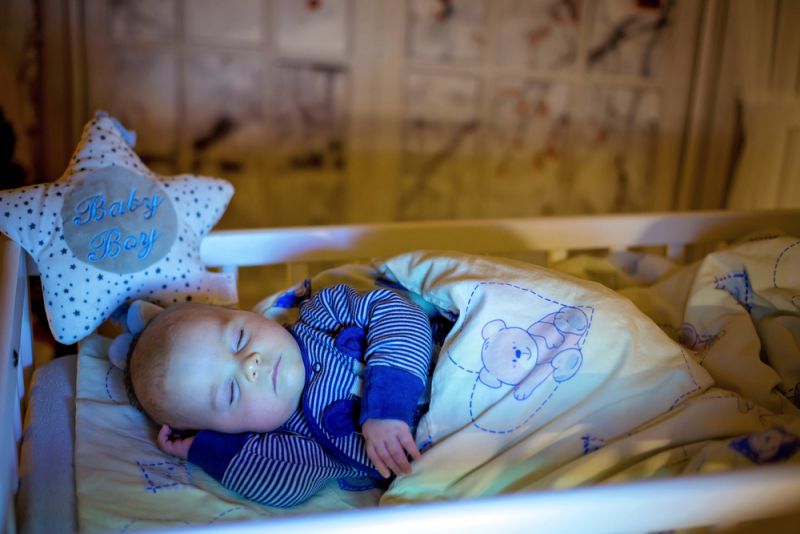
What experts recommend:
While you won’t fall asleep and smother or drop your baby in this instance, some accidents can still occur with your baby in another room. While this option is better than cosleeping, it is not as good for little babies as having bubs in the same room as you.
If they are in another room and get into trouble, you are less likely to hear them and slower to respond. Babies have become smothered by blankets or caught up in curtain cords which there are less chances of if they are in the same room as you.
What you may find in reality:
If their room is right next to yours, you might not see much difference to having them in your room or in theirs. If their room is on the other side of the house or on another level, you may want to consider holding off putting in their own room straight away.
You may find some relief in using a baby monitor, either just an audio one, or one with a sensory pad as well. You may sleep better in this instance than if your baby was in your room and waking you up with every tiny noise or cry.
They may get better at self-soothing if they are in a room on their own, which can be better for everyone’s sleep.
When they are in their own room, the same SIDS rules applies with regard to how they sleep; on their backs, swaddled, blankets tucked in, and head away from the end of the bed. No stuffed toys or extras in the bed, curtains nearby or cords nearby, or overhanging items such as mobiles. Keep your pets out of the room.
Risk Minimisation and Doing What Works
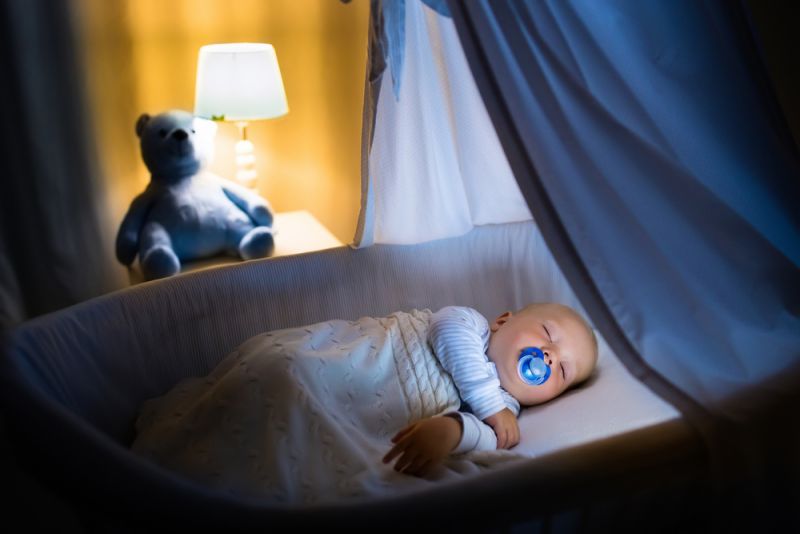
Experts in baby safety recommend that infants sleep in the same room, but not on the same surface as their parents. This has the least amount of physical risks attached to it.
However, it may not be possible, preferential or practical, and could mean both you and the baby sleep less, feed less, bond less and are more anxious, so a lot of parents will naturally want to do things another way sometimes.
Keep your baby as safe as you possibly can and always minimise their risks when sleeping but keep your own health in mind as well. If you choose to sleep with your baby, or like the majority of mums, just do this accidentally, do everything you can to keep them safe, and don’t feel guilty about it if it does.


